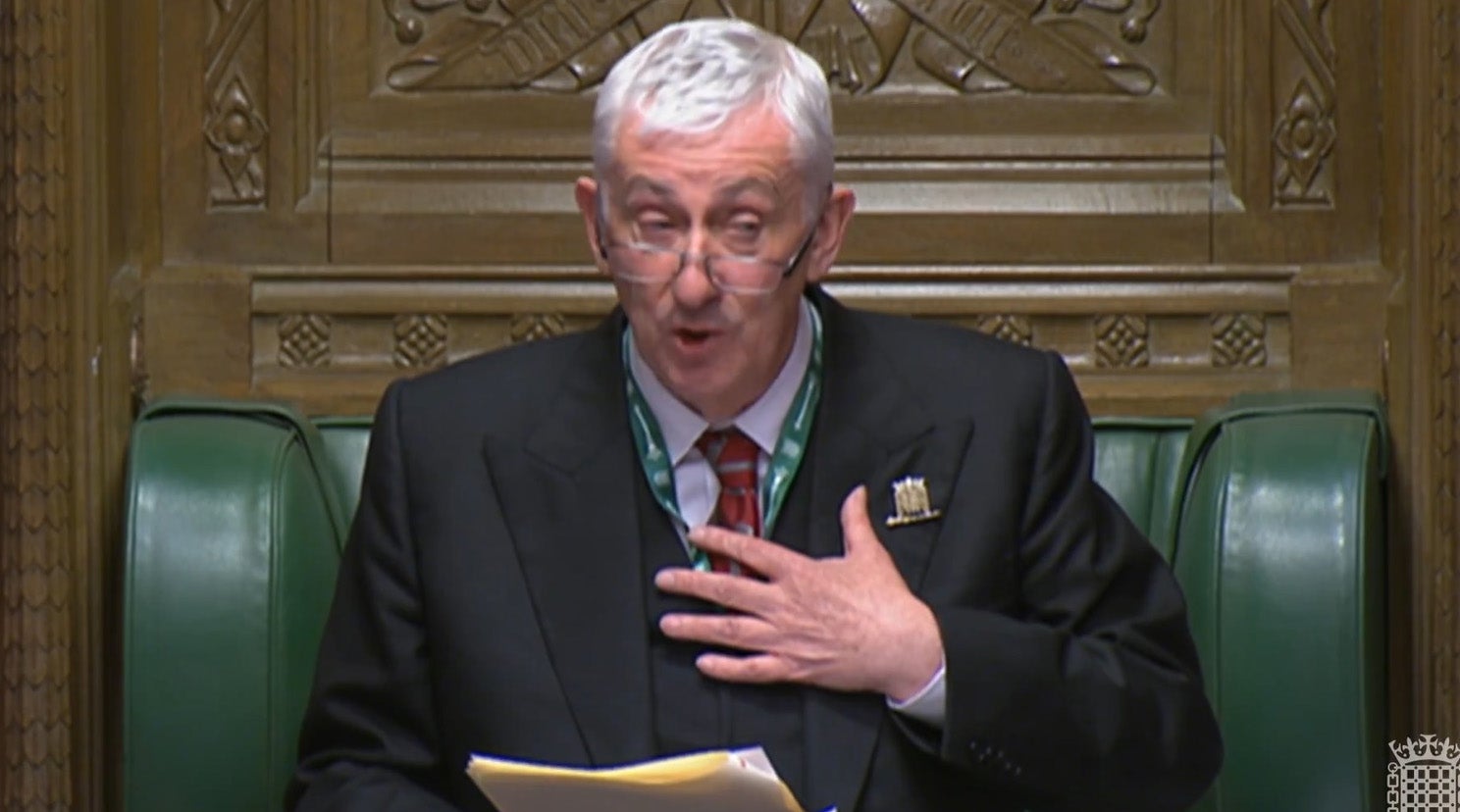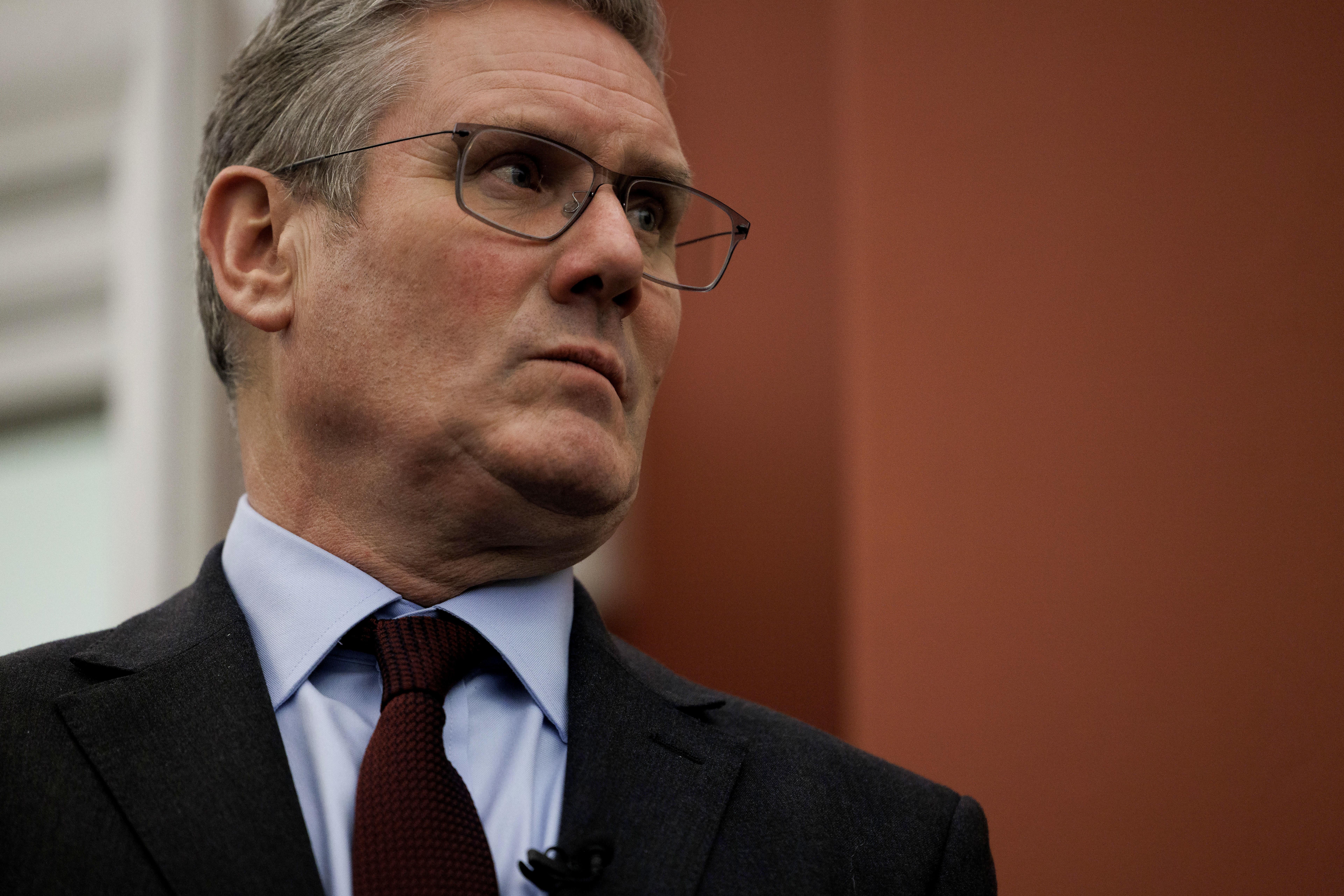Keir Starmer forced to deny threatening speaker Hoyle as Rishi Sunak piles on the pressure
More than 65 MPs sign no-confidence motion in Hoyle as he says he acted amid fears over ‘frightening’ threats

Sir Keir Starmer has been forced to deny he threatened the Commons speaker after a vote on a ceasefire in Gaza descended into chaos.
Sir Lindsay Hoyle is scrabbling to save his job after he was accused of “hijacking” a debate on the war and ripping up parliamentary procedure to favour Labour.
More than 65 MPs have signed a motion demanding his head, while Rishi Sunak described his actions as “very concerning”.
In an extraordinary move, Sir Keir was forced to deny using threats to ensure Labour got its way.
Ultimately, he sidestepped a potentially damaging rebellion over his party’s stance on the conflict.
Sir Keir said: “I can categorically [say] that I did not threaten the speaker in any way whatsoever.
“I simply urged to ensure that we have the broadest possible debate so that actually the most important thing - which is what do we do about the situation in Gaza – could be properly discussed by MPs with a number of options in front of them.”
But the leader of the Commons Penny Mordaunt accused the Labour leader of being “weak and fickle” and damaging the office of the speaker.
She told MPs: “I would never have done to [Lindsay Hoyle] what the Labour Party have done to him.” Sir Keir was “happy to do what he knows to be wrong”, she added.
But her party piled the pressure on the speaker, as Downing Street repeatedly refused to say whether Rishi Sunak had confidence in him.
Later the prime minister went further, warning parliament should never bow to “extremists” as he hit out at Sir Lindsay.

The speaker cited fears for the safety of MPs as he, as the prime minister put it, changed the “usual ways in which parliament works”.
Mr Sunak said it was “very concerning” as it “seems that the usual processes and the way that the House of Commons works were changed.”.
“We should never let extremists intimidate us into changing the way in which parliament works ... and just because some people may want to stifle that with intimidation or aggressive behaviour, we should not bend to that. That’s a very slippery slope,” he warned.
As he fought to keep his job, Sir Lindsay again took the extraordinary step of apologising to MPs, saying he had made the “wrong decision” as he blamed “frightening” threats to MPs’ safety.
He said he “never, ever wanted to go through a situation where I pick up a phone to find a friend of whatever side has been murdered by a terrorist”.
He added: “I also don’t want another attack on this House. I was in the chair on that day. I have seen, I have witnessed,” he said, referring to the 2017 terror attack outside parliament.
“I won’t share the details but the details of the things that have been brought to me are absolutely frightening on all members of this House, on all sides. I have a duty of care and I say that and if my mistake is looking after members, I am guilty. I am guilty because … I have a duty of care that I will carry out to protect people. It is the protection that led me to make a wrong decision.”
The fears were laid bare when Tory MP James Grundy revealed that after a previous vote in the Commons “my elderly parents were threatened with being stabbed to death”.
In a bid to ease tensions, the speaker offered the SNP, the third largest party at Westminster, an emergency debate, after they were unable to vote on their original ceasefire motion.
But the SNP’s Westminster leader, Stephen Flynn, called on the speaker to resign. Scottish first minister Humza Yousaf also weighed in, describing his position as “untenable”.
A number of Tory MPs also defended Sir Lindsay. One, senior Tory Sir Charles Walker, said to remove him on the basis of making one mistake would be “harsh and unusual punishment”.
Senior Tory Will Wragg, who submitted the no-confidence motion in Sir Lindsay, called for a vote on whether he should be replaced.
Earlier, health minister Maria Caulfield refused to back him, saying she “would struggle to support him” going forward.
Ms Caulfield, who backed Sir Lindsay to replace John Bercow as speaker in 2019, said his position is now “difficult”.
The row erupted when Sir Lindsay broke with Commons convention on Wednesday night to let MPs vote on Labour’s proposal for a ceasefire – as well as motions from the SNP and the government.

He was accused of caving to pressure from Sir Keir and other top Labour figures to put the party’s motion to a vote, amid fears many Labour MPs would rebel and back the SNP’s ceasefire motion.
Labour has faced claims it threatened to bring the speaker down, by withdrawing its support, if the party wins power at the general election.
The speaker’s decision resulted in chaos in the Commons, with Tory and SNP MPs walking out of the chamber in protest, and allowing Labour’s ceasefire motion to pass without a vote.
When Sir Lindsay announced his decision, against the advice of the Commons clerk, he was met with howls of “shame” and “bring back Bercow”.
On Thursday he held meetings with political parties in a bid to rebuild confidence in his impartiality. A source described his manner in the meetings as “pretty stoic”.
Labour’s national campaign coordinator Pat McFadden said Sir Lindsay was “taking the rap” for the Conservatives’ decision to boycott the votes. He also told Times Radio it was “absolute nonsense” to suggest Sir Lindsay was strong-armed into his decision by Labour figures.

The vote marked the first time the Commons formally backed an immediate ceasefire in Gaza, though the government does not have to adopt the position as the vote is not binding.
The SNP were ultimately unable to vote on their proposition calling for “an immediate ceasefire”, which was meant to be the focus of their alloted day in parliament.
Mr Flynn has also called for an investigation as he appeared to suggest Sir Keir and Labour’s chief whip had exerted pressure on Sir Lindsay, a former Labour MP, ahead of his decision to pick the party’s amendment for debate.
Had the speaker not chosen it, Labour MPs in favour of a ceasefire could have been pushed to back the SNP motion, in a repeat of a major rebellion against the Labour leadership in November.
Ms Mordaunt also announced the authorities are investigating reports a controversial pro-Palestinian message was projected onto parliament.
Former minister Andrew Percy told the Commons that “‘from the river to the sea, Palestine will be free’” had been projected onto parliament on Wednesday night.






Join our commenting forum
Join thought-provoking conversations, follow other Independent readers and see their replies
Comments